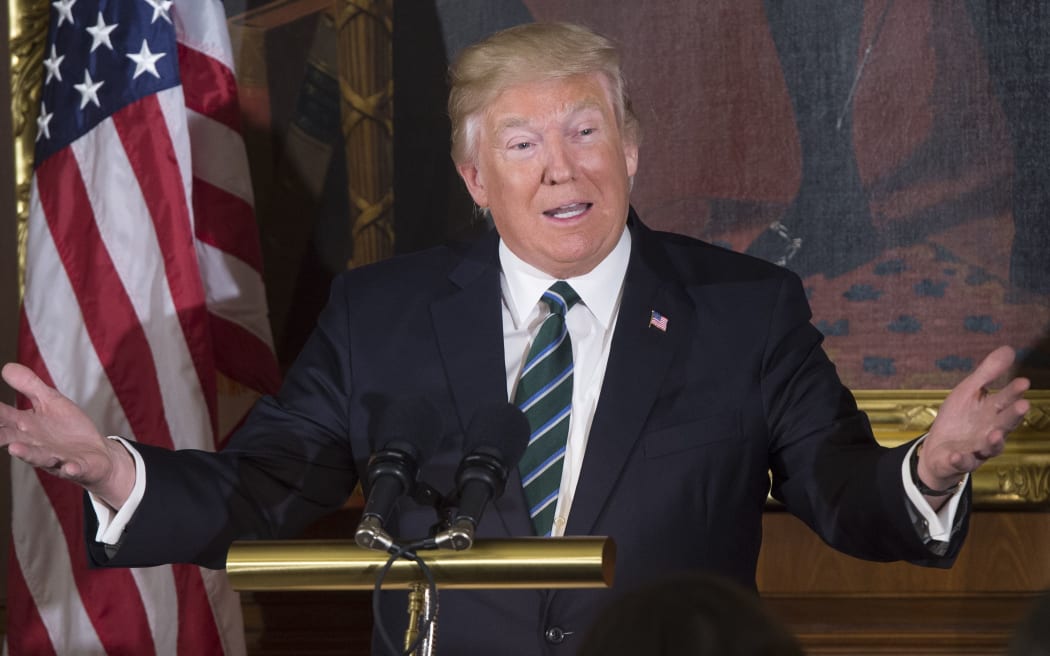A second federal judge has blocked US President Donald Trump's new travel ban, which was due to begin today.
A federal judge in Maryland has followed one in Hawaii in blocking the ban, which was due to begin after midnight on Thursday (local time).

US President Donald Trump has said he would take the case to the Supreme Court if neccessary. Photo: AFP
The order would have placed a 90-day ban on people from six mainly Muslim nations and a 120-day ban on refugees.
Both judges questioned the legality of the ban, which critics said was discriminatory.
President Trump insisted the move was to stop terrorists from entering the US and he complained of "unprecedented judicial overreach".
An earlier version of the order, issued in late January, sparked confusion and protests, and was blocked by a judge in Seattle.
In Hawaii, District Judge Derrick Watson cited "questionable evidence" in the government's argument that the ban was a matter of national security.
US District Judge Theodore Chuang, sitting in Maryland, also ruled it was meant to be a ban on Muslims, and therefore violated the First Amendment.
Hawaii state had argued that the ban would harm tourism and the ability to recruit foreign students and workers, while in Maryland the plaintiffs argued it discriminated against Muslims and illegally reduced to number of refugees being accepted for resettlement in the US.
What did the judges say?
Judge Watson said the court had established a strong likelihood that, were the ban to go ahead, it would cause "irreparable injury" by violating First Amendment protections against religious discrimination.
In his 43-page ruling, he argued that a "reasonable, objective observer" taking into account the context of the Executive Order would conclude it "was issued with a purpose to disfavour a particular religion".
It noted statements made by Mr Trump such as a 2015 press release calling for "a total and complete shutdown of Muslims entering the United States", and his adviser Rudolph Guiliani, who said in a television interview in January: "When [Mr Trump] first announced it, he said: 'Muslim ban'. He called me up. He said: 'Put a commission together. Show me the right way to do it legally.'"
It also said there was a "dearth of evidence indicating a national security purpose".
In his ruling, Judge Chuang wrote: "To avoid sowing seeds of division in our nation, upholding this fundamental constitutional principle at the core of our nation's identity plainly serves a significant public interest."
What does Mr Trump say?
Speaking at a rally in Nashville, Tennessee on Wednesday evening, Mr Trump said the ruling in Hawaii was "flawed" and a case of "unprecedented judicial overreach".
His administration has argued that the constitution gives the president the power to suspend immigration when he deems it to be in the national interest of the country, and that neither the initial or revised orders discriminate on the basis of religion.
Justice department lawyers argued that the revised ban was an extension of President Obama's move towards stricter screening of travellers from the six countries.
Mr Trump said he would take the case "as far as it needs to go", including to the Supreme Court.
-BBC

